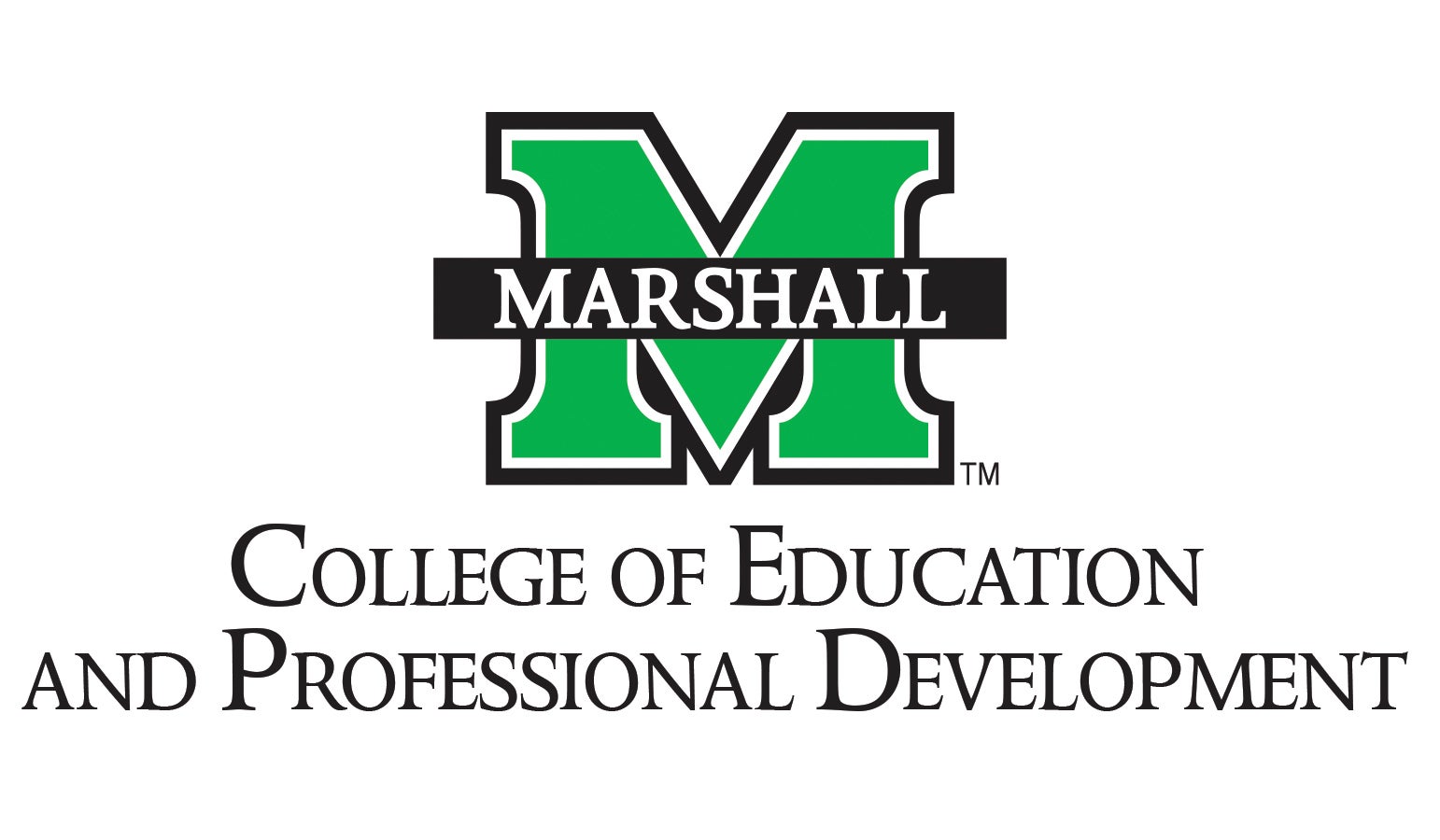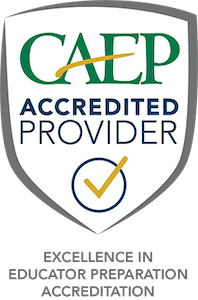
Accreditation Status
The College of Education and Professional Development (COEPD) at Marshall University was granted Accreditation at the initial-licensure level and the advanced-level by the Accreditation Council of the Council for the Accreditation of Educator Preparation (CAEP) on April 29, 2019.
CAEP Accredited Programs and Certifications
The degree programs and certificates below are recognized by CAEP. The COEPD offers degree programs and certificates that do not lead to teacher certification and are therefore not accredited by CAEP. For a complete list of undergraduate and graduate degree programs, certificates, and endorsements offered in the College of Education and Professional Development, please visit the COEPD Homepage.
CAEP Accredited Initial-Level Programs & Certifications
Optional Endorsements:
Early Childhood Education (Pre-K)
Special Education
Currently, the Secondary Education program offers licensure degree programs in the following areas:
Grades PreK-Adult
Art
Music
Wellness
Grades 5-Adult
English
General Science
Mathematics
Social Studies
Grades 9-Adult
Biological Science
Chemistry
Physics
The Special Education Master’s Degree may be earned with a specialization in any of the areas of emphasis listed below (except autism). Students without a background in education must acquire certification in regular education prior to endorsement in special education, or they can enter the Non-Education Certification Program. The Non-Education Certification Program is designed to allow candidates from non-education backgrounds to obtain West Virginia teacher licensure in visual impairments or multi-categorical. The non-education program does not include a general education teaching endorsement.
The Preschool Special Education Area of Emphasis is exempt from this requirement. The MA in Special Education, Preschool Special Education Area of Emphasis is a full certification program and students are not required to have an existing teaching certification to obtain certification in Preschool Special Education in WV. The program includes all coursework and student teaching requirements needed to obtain certification in preschool special education regardless of the student’s undergraduate degree (this includes other fields of discipline that are not education-related and RBA degrees). Students completing an undergraduate degree in early childhood education from Marshall University are not required to complete a student teaching field experience for the Preschool Special Education Program as this requirement is previously met as part of the undergraduate Early Childhood Education Degree. Additionally, students who wish to only complete the MA in Special Education with an emphasis in Preschool Special Education (without certification) have this option available to them.
Marshall University also offers coursework leading to the WV Autism Teaching Endorsement. To qualify for the endorsement students must take two graduate level autism courses. The endorsement is attached to a teaching certificate in emotional/behavior disorders, multi-categorical special education, mental impairment (mild/moderate), severe disabilities or pre-school special needs. Students may take the autism courses a part of their M.A. plan of study or as a non-degree student.
Accredited Areas of Emphasis:
Deaf & Hard of Hearing
Multicategorical Special Education
PreSchool Special Education
Teaching Visually Impaired
CAEP Accredited Advanced-Level Programs & Certifications
The Education Specialist (Ed.S.) program in School Psychology is accredited by the Council for the Accreditation of Educator Preparation (CAEP) in association with the National Association of School Psychologists (NASP). It is designed to prepare students to meet the Department of Education requirements for certification in West Virginia and other states. The Ed.S. consists of 39 hours of required coursework and field experiences, in addition to a Master of Arts (M.A.) Degree in Psychology with an emphasis in School Psychology (36 hrs).
You apply to the Master’s Degree in Psychology with School Psychology Emphasis first. After successfully completing 12 hours in the fall semester, you apply to the Ed.S. in School Psychology. You receive two degrees in our program after three years of full time enrollment!
The School Psychology Ed.S. Program at Marshall University focuses on practitioner training for the delivery of comprehensive school psychological services primarily in school settings. Ed.S. students are trained in a “scientist practitioner” model that emphasizes the use of research findings in clinical decision-making, both in terms of creating interventions as well as evaluating their efficacy. Ed.S. students draw upon scientific literature to make decisions regarding best practice with a focus on empirically supported services.
Graduate programs in Curriculum and Instruction include the Master of Arts in Education (MA in Education), Master of Arts in Teaching (MAT), Education Specialist in Curriculum & Instruction (Ed.S), Doctor of Education in Curriculum & Instruction (Ed.D.), and several graduate certificates.
Students pursuing the Master of Arts in Education may choose from a variety of concentrations including Early Childhood Education, Elementary Math Specialist, English as a Second Language, Individualized Plan of Study, Instructional Processes and Strategies, Instructional Technology & Learning, Library Media Specialist, and Math thru Algebra I.
Graduate Certificates are available in Early Childhood Education, Elementary Math Specialist, English as a Second Language, Instructional Technology & Learning, Library Media Specialist, Math thru Algebra I, and Program Evaluation. For specific information concerning each of these areas, please visit their webpage by clicking one of the links below.
If you are interested in applying for admission, please contact Kelly Sowards (program secretary) or the appropriate program coordinator, listed on the respective overviews.
Accredited Areas of Emphasis:
Early Childhood Education
Elementary Mathematics Specialist
Mathematics Through Algebra I
School Library Media Specialist
Teaching English as a Second Language
Accredited Area of Emphasis:
Educational Leadership
- We offer a Master of Arts in Literacy Education, an Educational Specialist Degree in Curriculum and Instruction, and a Graduate Certificate in Literacy Education to meet the unique needs of literacy professionals.
- Programs lead to careers as Classroom Teachers, Literacy Specialists/Coaches, and Title One Literacy Teachers
- Master’s Degree is a pathway to a Reading Specialist Endorsement from WVDE
- Applicants from other states should check with their state agency about their accreditation requirements.
- Programs are CAEP accredited
- Online and face-to-face delivery options
- School-based field and practicum experiences
- Typically take 2 years to complete the Master’s Degree if enrolled as a full-time student
- Affordable online classes
- Financing options available
- Early Childhood Education
- Elementary Mathematics Specialist
- Literacy Education
- Mathematics Through Algebra I
- School Library Media Specialist
- School Principalship
- Social Service and Attendance
- Teaching English as a Second Language

